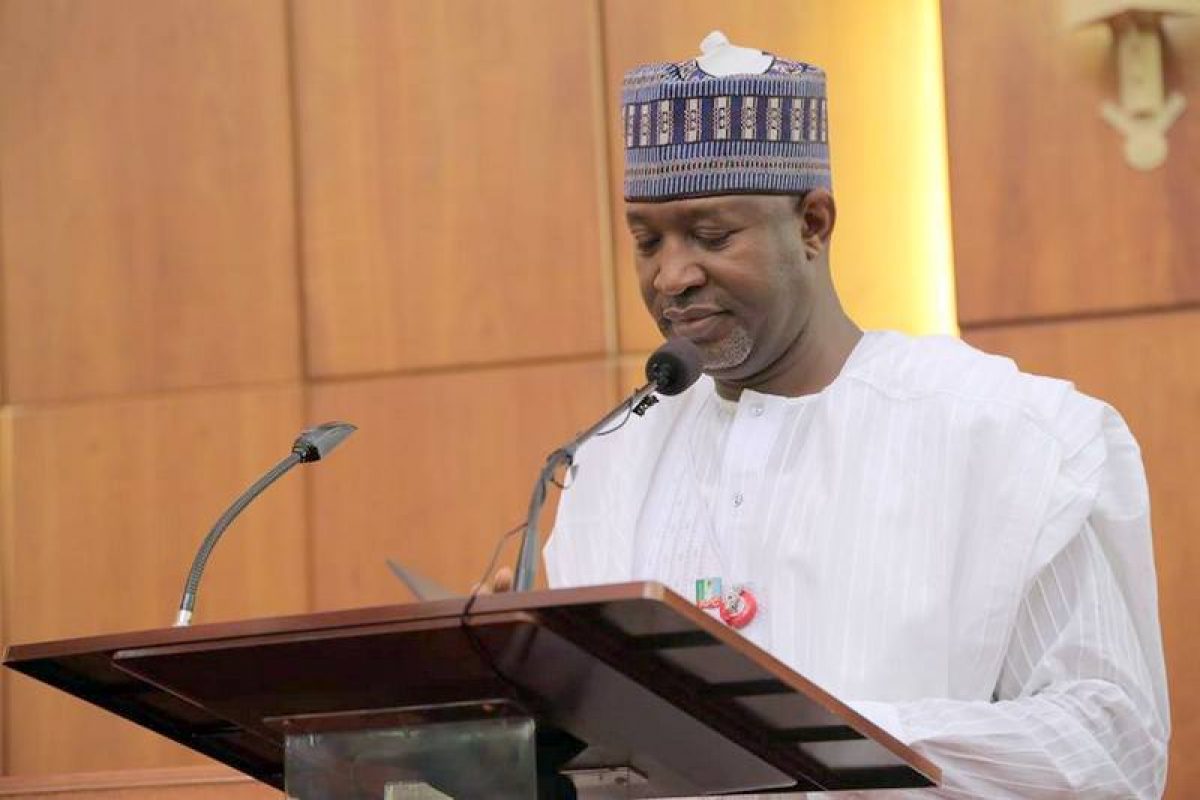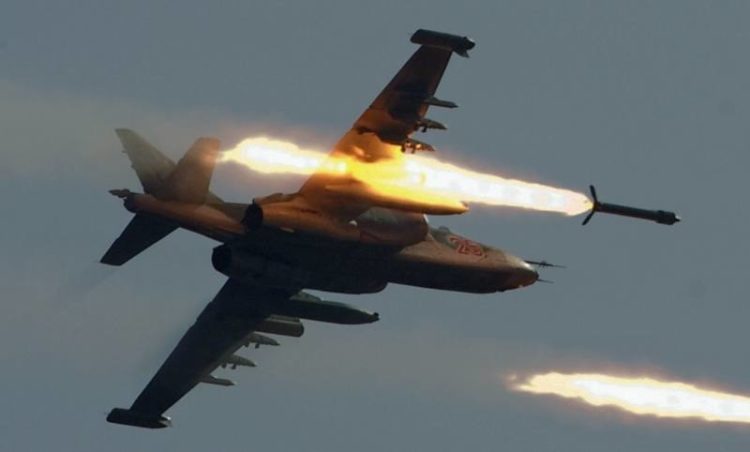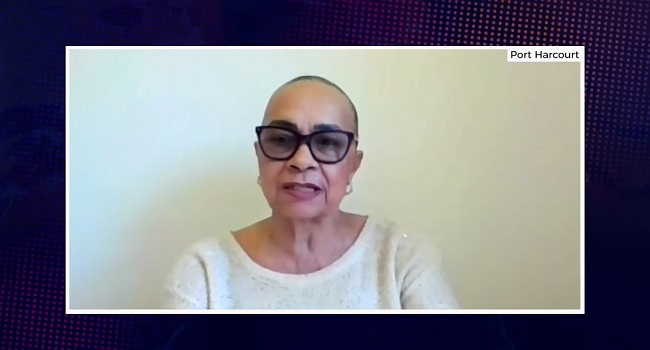Aviation
Foreign airlines’ withdrawal and stranded funds will cost Nigeria $1.36 billion

Dire implications await the Nigerian economy should foreign airlines make good their threat to withdraw flight services over stuck funds estimated to have reached $464 million as of July 2022.
Specifically, the exit of foreign carriers that account for 80 per cent of commercial aviation earnings to the Gross Domestic Product (GDP) will hobble the projected growth of the air transport sector and cost Nigeria $1.36 billion or N567.12 billion (at $/N417) yearly.
The losses, The Guardian learnt, will not be unconnected with well-off Nigerian travellers (in the absence of foreign airlines) departing for neighbouring African countries to board the same international flights or paying for those bookings in foreign currencies only.
Similarly, should the airlines demand payment in US dollars, the already saturated parallel foreign exchange market may witness a further weakened naira, as demand outweighs supply for the greenback.
Already, things are also not looking up for the country’s sole carrier on the international front. Air Peace airline, yesterday, announced its withdrawal from the Lagos-Johannesburg route over low patronage on account of the South African Embassy’s delay in granting approval to visa applicants in Nigeria, among other operational reasons.
Apparently aware of tougher times that await Nigerian aviation in such circumstances, major stakeholders have urged the Federal Government to exercise caution and parley more with “the business partners” over the precarious foreign exchange liquidity crisis and sundry constraints.
Indeed, these are not the best of times for the air transport sector and the economy at large. While the local operators are surviving by the skin of their teeth over the high cost of aviation fuel and depleting capacity, their foreign counterparts are hard done by the inability to repatriate foreign exchange equivalents for flight tickets already sold in naira.
After an earlier warning by the International Air Transport Association (IATA) and Emirates Airlines’ threat to slash Nigeria-bound flights by August 15, the carrier last week hinted at total withdrawal from Lagos and Abuja routes, effective September 1. The airline has about $90 million in yet-to-be repatriated funds in Nigeria.
The Guardian learnt at the weekend that more legacy carriers are considering the “commercial decision” to avert losses on stuck funds in a “volatile economy”, should the situation persist.
A member of the Association of Foreign Airlines in Nigeria told The Guardian that the decision was not unique to Emirates, but other legacy carriers were also weighing their options.
“We have been here before in 2016 and foreign airlines left. But you cannot blame airlines for taking such tough decisions because they have to survive to operate in Nigeria. Nigeria is a viable market for all foreign airlines to operate in, but during a cash crunch, lack of funds to cover operating costs, currency volatility and no commitment whatsoever from the authorities, what should businesses do?” he queried.
Though he would not mention airlines, the operator said the withdrawal threat does not exclude most of the 20 operating foreign airlines, including Delta, United, Air France-KLM, Lufthansa, British Airways and Virgin Atlantic.
By IATA’s estimate, Nigerian aviation earned a total of $1.7 billion in 2020, out of which 80 per cent was credited to the foreign carriers flying Nigerian routes, through sundry operational charges and taxes that are remitted in hard currencies.
Minister of Aviation, Hadi Sirika, at the inauguration of the new international terminal at Murtala Muhammed International Airport (MMIA), Lagos, recently, acknowledged the foreign airlines’ contribution to the economy.
Sirika reckoned with IATA’s projection that at the current pace, the air transport market in Nigeria would grow by 174 per cent in the next 20 years. “This would result in an additional 9.4 billion passenger journeys by 2037. If met, this increased demand would support approximately $ 4.7 billion of GDP and almost 555,700 jobs.”
Unfortunately, and with foreign airlines unable to do business freely, those projections are now at risk.
Commandant of the Lagos Airport in the 90s, Group Capt. John Ojikutu (rtd), said the current outlook looks fearful, except the Federal Government strategically pulls the industry back from the brink.
Ojikutu said: “We are going to be the loser if the foreign airlines withdraw their services of flights to our country because about 70 to 80 per cent of our earnings in commercial aviation is from the foreign airlines. What will happen is that we will see Nigerians going to Accra, Cotonou, Lome, and so on, to connect the flights of these foreign airlines making them hubs over Nigeria.
“I saw this happening to us when a minister unilaterally cut off the commercial agreements between us and them (airlines) and when we indirectly opened the domestic routes and markets to multiple destinations. The consequences are staring at us all. Now, who will save us from ourselves?”
He added that the immediate solution, beyond blaming the Central Bank of Nigeria (CBN), is to have all the government agencies that have been earning forex on their services account for the earnings in the last 10 years.
“Otherwise, we, particularly our aviation industry, are on the way to the valley of the shadow of death. First, why do we find ourselves among the countries that are not keeping to the articles of the Bilateral Air Service Agreements (BASAs)? Secondly, what happens to our forex earnings on commercial aviation, particularly those earned by the aviation services providers like the Passenger Service Charge (PSC) of $100/passenger and those earned on landing and parking?
“What about the forex earnings by others like the ground handling services companies such as NAHCO Plc, SAHCO Plc and the fuel marketers? My last calculation on all these is over $1 billion. But where are they before we start blaming the CBN that cannot account for the forex earnings and deposits from NNPC, NPA, NIMASA and so on?
“Any agency collecting forex must account for it, deposit it at the CBN and collect naira equivalence. That, I believe, is the law because we don’t spend dollars and our budgets are in naira. That is what I reasoned out of Obasanjo’s directive to the government aviation agencies in 2006,” Ojikutu said.
Aviation Safety Round Table Initiative (ASRTI), a think-tank group of the local aviation sector, also expressed dismay at the “appalling handling” of the accumulated foreign airline funds.
The group reminded the Federal Government that in all BASAs, an article in the agreement on the transfer of earnings, clearly states that “each designated airline shall have the right to convert and remit to its country on demand, local revenues in excess of sums locally disbursed. Conversion and remittance shall be permitted without delay in accordance with the prevailing foreign exchange regulations.”
President of the ASRTI, Dr Gbenga Olowo, noted that international trade is bound by agreements, which are sacrosanct and respected. “Nigeria cannot do otherwise if we crave the attention of investors in our industry,” Olowo said.
He added that foreign airlines sold these tickets at the official IATA Rate of Exchange (RoE) and could not be expected to source the parallel market, convert and remit as suggested in some quarters.
“The Central Bank should do the needful as enshrined in the BASA agreements. The damage that our action has done to the Nigerian image as an investment-friendly nation is far-reaching, while the citizenry is faced with high fares, reduced capacity and limited travelling options, which will worsen if we continue on this trajectory,” he said.
Chairman of the Airline Passenger Joint Committee of the International Air Transport Association (IATA), Bankole Bernard, noted that Emirate’s withdrawal would cost Nigeria between 10 to 15 per cent of its inventory.
Bernard, however, said that Emirates’ pulling out would be a blessing for other airlines on the Dubai route, especially Air Peace airline.
“I think the situation should have been better managed by both the Federal Government and Emirates airlines. The foreign exchange crunch is not peculiar to Nigeria. Note that there is global inflation and economic recession in many parts of the world. The Russia-Ukrainian crisis and excess monies doled out during the pandemic are beginning to hurt economies. Those are the issues, but because we have failed to engage with our partners here, we are feeling the effects more.
“Notwithstanding, I think this is the time for Nigeria’s flag carrier (Air Peace) to increase its inventory on the Dubai route. The Nigerian market is not bad for any airline and they (withdrawing airlines) will miss Nigeria more. But the government too must be proactive and engage the market shareholders even more,” Bankole said.
Just yesterday, Air Peace said its temporary withdrawal from the Lagos-Johannesburg route will take effect from today, August 22, citing a worsening forex crunch, increasing cost of aviation fuel as well as its scarcity in addition to the delayed issuance of visas to travellers by South African.
The Air Peace management said in a statement: “Having informed the South African High Commission in Lagos of the effects of the difficulty in getting SA visas by Nigerians, which consequence is the abysmally low passenger loads on our flights to and from Johannesburg, we believe that the situation will have improved within the next 60 days. Hence, our willingness to resume operations on October 8, 2022.”
The subtle restriction in travel is not peculiar to Air Peace. South African Airways (SAA) is also considering a reduction of daily flight services to three-weekly flights to avert flying empty.
IATA, the clearing house for over 280 world airlines, has also urged the Federal Government to ensure foreign airlines repatriate their funds in the interest of Nigerian aviation. The body expressed disappointment that the amount of airline money blocked by the Nigerian government grew to $464 million in July.
Its Regional Vice President for Africa and the Middle East, Kamil Alawadhi, said IATA’s many warnings that failure to restore timely repatriation would hurt Nigeria with reduced air connectivity are proving true with the withdrawal of Emirates from the market.
Alawadhi said: “Airlines cannot be expected to fly if they cannot realise the revenue from ticket sales. Loss of air connectivity harms the local economy, hurts investor confidence, and impacts jobs and peoples’ livelihoods. It’s time for the government of Nigeria to prioritise the release of airline funds before more damage is done.”
Aviation
NAF airstrikes destroy terrorist food depot, kill scores in Lake Chad

This is contained in a statement by the Director, Public Relations and Information, Nigerian Air Force (NAF), Air Commodore Olusola Akinboyewa, on Monday in Abuja.
Akinboyewa said the NAF aircraft carried out the operations in Nov. 23 on the strategic location, identified through meticulous intelligence efforts.
He said the location served as a critical food storage site and a sanctuary for terrorist commanders and fighters.
He added that intelligence had previously linked terrorists in the location to recent attacks, including the assault on troops in Kareto on Nov. 16.
According to him, the NAF fighter jets, in response, launched a robust air interdiction mission, destroying identified structures used as storage facilities and neutralising terrorists on-site.
“Mop-up operations using cannons ensured the complete elimination of fleeing hostile elements.
“The operation’s success was made possible by extensive Intelligence, Surveillance, and Reconnaissance (ISR) missions conducted over several days, confirming the presence of active terrorist structures camouflaged under dense vegetation.
“The destruction of the terrorist enclave, including food storage facilities, severely disrupted their logistical operations, while the neutralisation of a significant number of fighters diminished their capacity to launch future attacks,” he said.
Akinboyewa said the mission had demonstrated the NAF’s unwavering commitment to defending our nation and people, acting singly and supporting surface forces in counterterrorism operations.
He reiterated the NAF’s commitment to sustain robust independent and joint operations until all enemies of Nigeria’s prosperity and wellbeing are brought to justice.
Africa
Customs hands over illicit drugs worth N117.59m to NDLEA

The Nigeria Customs Service (NCS), Ogun Area 1 Command, has handed over illicit drugs worth N117.59 million to the National Drug Law Enforcement Agency (NDLEA).
The Comptroller of the command, Mr James Ojo, disclosed this during the handing over of the drugs to Mr Olusegun Adeyeye, the Commander of NDLEA, Idiroko Special Area Command, in Abeokuta, Ogun, on Friday.
Ojo said the customs handed over the seized cannabis and tramadol tablets to the Idiroko Special Command for further investigation in line with the standard operating procedures and inter-agency collaboration.
He said the illicit drugs were seized in various strategic locations between January and November 21, 2024, in Ogun State.
He added that the illicit drugs were abandoned at various locations, including the Abeokuta axis, the Agbawo/Igankoto area of Yewa North Local Government Area, and Imeko Afton axis.
Ojo said that the seizure of the cannabis sativa and tramaling tablets, another brand of tramadol, was made possible through credible intelligence and strategic operations of the customs personnel.
“The successful interception of these dangerous substances would not have been possible without the robust collaboration and support from our intelligence units, local informants and sister agencies.
“These landmark operations are testament to the unwavering dedication of the NCS to safeguard the health and well-being of our citizens and uphold the rule of law,” he said.
He said the seizures comprised 403 sacks and 6,504 parcels, weighing 7,217.7 kg and 362 packs of tramaling tablets of 225mg each, with a total Duty Paid Value of N117,587,405,00.
He described the height of illicit drugs smuggling in the recent time as worrisome.
This, he said, underscores the severity of drug trafficking within the borders.
“Between Oct. 13 and Nov. 12 alone, operatives intercepted a total of 1,373 parcels of cannabis sativa, weighing 1,337kg and 362 packs of tramaling tablets of 225mg each,” he said.
Ojo said the seizures had disrupted the supply chain of illicit drugs, thereby mitigating the risks those substances posed to the youth, families and communities.
He lauded the synergy between its command, security agencies and other stakeholders that led to the remarkable achievements.
Ojo also commended the Comptroller General of NCS for creating an enabling environment for the command to achieve the success.
Responding, Adeyeye, applauded the customs for achieving the feat.
Adeyeye pledged to continue to collaborate with the customs to fight against illicit trade and drug trafficking in the state.
Africa
Ann-Kio Briggs Faults Tinubu for Scrapping Niger Delta Ministry

Prominent Niger Delta human rights activist and environmentalist, Ann-Kio Briggs, has criticised President Bola Tinubu’s decision to scrap the Ministry of Niger Delta, describing it as ill-advised and detrimental to the oil-rich region.
Briggs expressed her concerns during an appearance on Inside Sources with Laolu Akande, a socio-political programme aired on Channels Television.
“The Ministry of Niger Delta was created by the late (President Umaru) Yar’Adua. There was a reason for the creation. So, just removing it because the president was advised. I want to believe that he was advised because if he did it by himself, that would be terribly wrong,” she stated.
President Tinubu, in October, dissolved the Ministry of Niger Delta and replaced it with the Ministry of Regional Development, which is tasked with overseeing all regional development commissions, including the Niger Delta Development Commission (NDDC), North-West Development Commission, and North-East Development Commission.
Briggs questioned the rationale behind the restructuring, expressing concerns about its feasibility and implications. “But that’s not going to be the solution because who is going to fund the commissions? Is it the regions because it is called the Regional Development Ministry? Is it the states in the regions? What are the regions because we don’t work with regions right now; we are working with geopolitical zones,” she remarked.
She added, “Are we going back to regionalism? If we are, we have to discuss it. The president can’t decide on his own to restructure Nigeria. If we are restructuring Nigeria, the president alone can’t restructure Nigeria, he has to take my opinion and your opinion into consideration.”
Briggs also decried the longstanding neglect of the Niger Delta despite its significant contributions to Nigeria’s economy since 1958. “The Niger Delta has been developing Nigeria since 1958. We want to use our resources to develop our region; let regions use their resources to develop themselves,” she asserted.
Reflecting on the various bodies established to address the region’s development, Briggs lamented their failure to deliver meaningful progress. She highlighted the Niger Delta Basin Authority, the Oil Mineral Producing Areas Development Commission (OMPADEC), and the NDDC as examples of ineffective interventions.
“NDDC was created by Olusegun Obasanjo…There was OMPADEC before NDDC. OMPADEC was an agency. Before OMPADEC, there was the Basin Authority…These authorities were created to help us. Were we helped by those authorities? No, we were not,” she said.
Briggs further described the NDDC as an “ATM for failed politicians, disgruntled politicians, and politicians that have had their electoral wins taken away from them and given to somebody else.”
Her remarks underscore the deep-seated frustrations in the Niger Delta, where residents continue to advocate for greater control over their resources and improved governance.
-

 Headlines4 years ago
Headlines4 years agoFacebook, Instagram Temporarily Allow Posts on Ukraine War Calling for Violence Against Invading Russians or Putin’s Death
-

 Headlines4 years ago
Headlines4 years agoNigeria, Other West African Countries Facing Worst Food Crisis in 10 Years, Aid Groups Say
-

 Foreign4 years ago
Foreign4 years agoNew York Consulate installs machines for 10-year passport
-

 News1 year ago
News1 year agoZero Trust Architecture in a Remote World: Securing the New Normal
-

 Entertainment3 years ago
Entertainment3 years agoPhyna emerges winner of Big Brother Naija Season 7
-

 Headlines2 years ago
Headlines2 years agoNigeria Customs modernisation project to check extortion of traders
-

 Entertainment2 years ago
Entertainment2 years agoMovie download platform, Netnaija, announces closure
-

 Economy2 years ago
Economy2 years agoWe generated N30.2 bn revenue in three months – Kano NCS Comptroller













